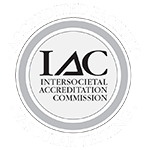
Following up from our previous post, Why Are My Legs Swelling, we wanted to further explore this topic and discuss some of the treatment options that may be available to help alleviate your swollen legs, a.k.a, peripheral edema.
As we know, leg swelling is a common occurrence that can be caused by different medical issues. And while it may be common, there are times it could be a serious condition that needs urgent attention.
Treatment is different for each person and depends on the underlying cause. And causes can range from infection to obesity to injury to high blood pressure to cancer, as well as DVT and inflammation of the vasculature known as Vasculitis . . . just to name a few!
Diagnosing Swollen Legs
Knowing what is causing your legs to swell will help determine what the proper treatment should be. To do this properly, you should always consult with board-certified vascular specialist.
Did you know there are 15 board-certified vascular doctors at The Cardiovascular Care Group?
Some of the questions that may be asked in the diagnosis include:
- Have you had any recent injuries or surgeries?
- Have you been on any long trips with the inability to move?
- Are you taking any new medications?
In addition to the questions, there are also some tests that may be conducted. These could include:
- A venous ultrasound of the leg to determine if there are any blood clots
- An echocardiogram (heart ultrasound)
- Blood tests to check if the kidneys, liver and thyroid are functioning properly
- Imaging tests to see if any tumors are impinging upon your leg veins
Leg Swelling Treatments
Again, with the many options used to treat leg swelling, the right one for you will be best determined through a consultation with your doctor.
Sometimes medications like anticoagulants, antibiotics, and even diuretics can help treat underlying problems and get rid of excess fluid in your legs. If your leg swelling is due to poorly functioning veins or lymphatics, the following may be recommended:
- Elevating your legs
- Exercises
- Massage therapy
- Compression stockings
- Pneumatic compression pumps
- Reducing the amount of salt in your diet
Leg Swelling FAQs
As mentioned, leg swelling can be a common issue. Here are some of the more frequently asked questions we get on this topic:
- Will surgery help with my swollen legs? Surgery of any sort should be considered a last resort. Working with a board-certified vascular doctor, you will be able to determine what are the best treatment options for you. If the swelling is determined to be from severe varicose veins, then an ablation or phlebectomy may be considered.
- Does acupuncture help with reducing swollen legs? If the root cause of your swelling is a retention of fluid in your tissues – edema – then there has been some success with using acupuncture as a method to encourage the reduction of this retention. Again, we recommend consulting with your primary care physician first in order to rule out any serious underlying factors.
- Is there a pill or other medicine I can take to treat swelling? If your healthcare provider determines you are a candidate for such medicine, there are prescriptions you can take. Blood thinners like Coumadin, Heparin and Eliquis are used to treat blood clots, which may be a cause of your swelling. Antibiotics like cephalexin treat skin infections. And, “water pills” like furosemide, hydrochlorothiazide, and spironolactone can help get rid of excess fluid.
- Are compression stockings the only thing I can do to treat my leg swelling? For the right issue, compression stockings can be a good solution. Certainly, these stocking are not the only solution, as discussed above.
The Bottom Line
Leg swelling treatment may be a simple and straightforward solution. However, always be mindful of the other warning signs that indicate your swelling may be more serious. Rapid onset of swelling may indicate deep vein thrombosis. Redness, warmth and skin ulcerations along with leg pain and fever may suggest infection. Issues with your heart, kidneys, thyroid, and liver may also cause large amounts of leg swelling. And, chest pains, dizziness, shortness of breath may be related to an embolism that is cutting off circulation and may cause swelling.
As always, we are here to help you. If you have any questions and concerns about leg swelling, please schedule an appointment with us today. In the meantime, download our free eBook on Leg Swelling.








_2.jpg)